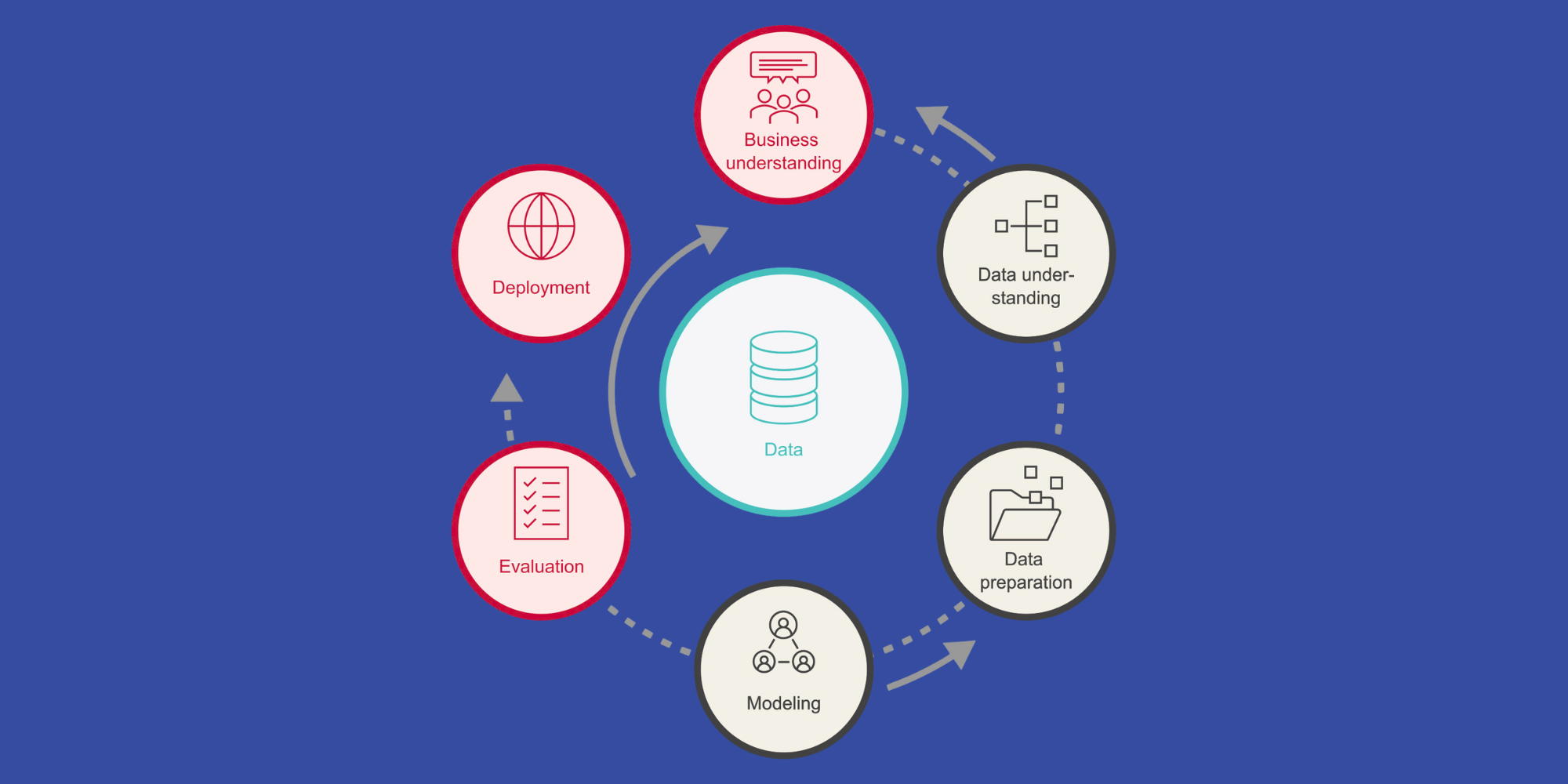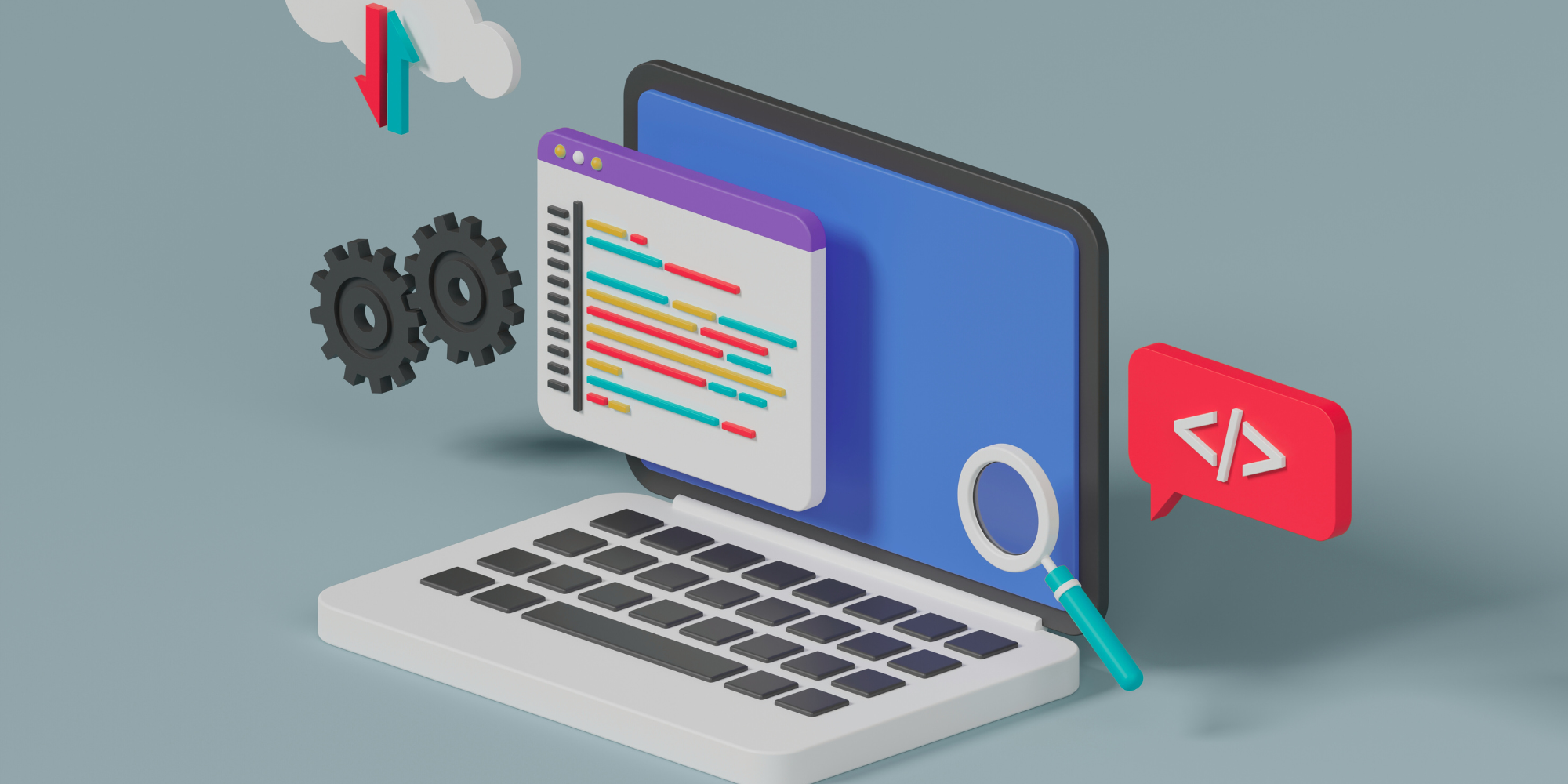Thinking about transitioning into tech but not sure where to begin? You’re not alone, and we understand exactly how that feels. Making a career change is a bold and empowering decision. Whether you’ve spent years in a different industry or are starting fresh, you already have the drive, determination, and potential to succeed in tech.
Navigating a new field, learning unfamiliar tools, and stepping outside of your comfort zone can feel daunting. But here’s the truth: every successful tech professional was once in your shoes.
At SMU x Flatiron School, our mission is to enable the pursuit of a better life through education. We don’t just teach theory, we focus on real-world skills that employers are actually looking for. You’ll build projects, solve problems, and gain experience that prepares you for life on the job. And most importantly, you won’t be doing it alone. When you join our program, you become part of a supportive community of fellow learners, mentors, and career changers. These are people who genuinely care about your success and know exactly what you’re going through.
So, if you’re ready to pivot into tech, we’re here to walk that path with you every step of the way! Transitioning into a tech career isn’t just a job change, it’s a gateway to endless opportunities, ongoing learning, and the ability to help shape the future through innovation. This guide will take you step by step through the process, even if you're starting with no prior experience in tech.
What You Can Expect From Tech Career Transition
Starting a tech career with little to no prior experience can be challenging, but it’s far from impossible. By following a clear roadmap, building the right skill set for your desired role, and strategically leveraging your past experience, you can make your career transition into tech a smooth and successful one.
Here’s what you can expect:
- Higher Earning Potential: Tech professionals often see rapid salary growth as they gain experience.
- Job Security: Strong demand for tech skills provides stability across industries.
- Clear Career Growth: Opportunities to advance from entry-level to leadership roles.
- Continuous Learning: The fast-paced nature of tech fosters ongoing personal and professional growth.
- Innovative Work: Be part of cutting-edge projects and emerging technologies.
- Flexible Work Environments: Tech skills are needed in startups, corporations, nonprofits, and more.
Guide To Transitioning Into a Tech Career
Step 1: Clarify Your Career Goals and Identify Skill Gaps
Before diving into a new career path, it's important to take a step back and reflect on your motivations. Understanding why you want to make a change will help ensure that you're moving toward a career that is not only viable but also fulfilling and aligned with your long-term goals.
Start by assessing your core values, interests, and priorities:
- What drives you?
- What types of work excites you or gives you a sense of purpose?
- Consider factors such as work-life balance, fulfillment, financial stability, or the desire to make a meaningful impact
Try taking a career assessment test to help you identify potential career paths. This can help highlight potential paths that match your strengths, interests, and values, especially if you’re feeling uncertain or overwhelmed by the options available. Taking the time to understand your motivations early on can guide your decision-making throughout the transition and help you choose a tech role that truly suits you.
Once you've chosen a tech career path, take time to research the specific skills required. Most tech roles demand a mix of technical skills such as programming and data analysis, and soft skills such as communication, problem-solving, and teamwork. Don’t overlook the value of transferable skills from your current or previous roles. Skills like project management, critical thinking, and collaboration can be just as essential in tech and may give you a unique edge as you transition.
Step 2: Develop Your Technical Skills
A traditional degree isn’t always required to break into tech. Many career changers choose alternative learning paths that better fit their interests, schedules, and budgets.
- Bootcamps: Intensive, hands-on training programs designed to equip students with in-demand tech skills in months rather than years.
- Self-Paced Learning: If you’re looking for flexibility, platforms like freeCodeCamp, The Odin Project, and Khan Academy offer self-paced learning to help you build a strong foundation in tech.
Step 3: Earn Relevant Certifications
Certifications showcase your dedication to continuous learning and can boost your appeal to employers, especially when applying for entry-level positions.
- AWS Certified Cloud Practitioner: Ideal for non-technical professionals or beginners who want to build a cloud career with the world’s most widely used cloud platform.
- CompTIA Security+: Best for newcomers to cybersecurity, focusing on foundational security skills.
- Cisco Certified Network Associate (CCNA): Best for beginners who want to prepare for roles like a network engineer or systems administrator.
- CompTIA A+: Best for aspiring IT support specialists, help desk technicians, or anyone starting an IT career with no experience.
Step 4: Build a Portfolio
Create a portfolio of projects that demonstrate your skills:
- Open-source contributions: Contribute to Github projects
- Personal projects: Create a website and build apps or tools that solve real-world problems or reflect your interests
- Freelance or volunteer opportunities: Offer your tech skills to nonprofits or small businesses
- Participation: Participate in coding competitions or hackathons
Step 5: Networking
In today’s competitive tech industry, networking is just as vital as technical skills. A strong professional network can open doors to job opportunities, uncover hidden opportunities, and keep you updated on the latest trends and developments in the field.
- Attend industry events, local tech meetups, and conferences
- Engage in online communities like Stack Overflow, GitHub, or Reddit tech thread
- Use LinkedIn actively to connect with tech professionals, post insights, and comment on tech news or discussions
Step 6: Optimize Your Job Search
When you’re ready to apply for tech jobs, follow these steps:
- Revamp your resume by highlighting transferable experiences from previous roles
- Highlight any projects, skills, tools, or technologies you’ve used that align with tech
- Review job descriptions in your desired field and match them with your current skill set
- Set up job alerts on LinkedIn
Success Stories
Andrew Smit, from Band Director to Software Engineer
Andrew is a 2023 Software Engineering student from Flatiron School. After nine years as a public school band director, he embarked on a transformative journey at Flatiron and successfully transitioned into a fulfilling career in software engineering. While passionate about teaching and music, he sought a career change that could offer more upward mobility for long-term growth, more time at home with his family, and new challenges. His strong foundation in problem-solving, critical thinking, and collaboration led him to the world of software development.
He is now an Associate Software Engineer at Liberty Mutual Insurance.
“A little bit every day goes a long way, and before you know it, those little instances add up to something big.”
Read more about his journey: https://techpro.smu.edu/blog/andrew-smit-band-director-to-software-engineer
Katie Behrmann, from Educator to Engineer
Katie is a 2023 Software Engineering student from Flatiron School. Formerly an upper elementary/middle school STEM teacher, she discovered her passion for tech during the pandemic while working as a customer support specialist at an EdTech startup. Helping users troubleshoot issues sparked her interest in programming and inspired her to pursue a career in software engineering. Her journey reflects both her dedication and the practical skills she gained at Flatiron School.
She now works as a Technical Support Engineer at Samsara.
“I found the software engineering curriculum to be surprisingly fun and extremely well-structured.”
Read more about her journey: https://flatironschool.com/blog/katie-behrmann/
Why Bootcamps Are Ideal For Career Changers
For those looking to break into tech, bootcamps offer a fast, focused, and practical path. These programs are designed to equip career changers with job-ready skills in just a few months, far quicker and more affordable than a traditional computer science degree. Bootcamp curricula ensure students learn the most relevant tools, languages, and frameworks. Through real-world projects, learners build strong portfolios that showcase their abilities to employers from day one.
Many bootcamps provide career support such as resume help, interview prep, and career services. Some even partner with tech companies, creating direct hiring pipelines for graduates.
Bootcamps also offer valuable networking opportunities where students learn alongside other career changers and gain access to active student communities and industry connections. Many programs offer flexible learning options, including part-time or online formats, making it easier to learn while working or managing other responsibilities. While challenging, bootcamps provide a structured, supportive environment to help you quickly pivot into a tech career. Just be sure to do your research. Look at reviews, job placement rates, and curriculum details to find a program that aligns with your goals.
Transition Into Your Tech Career with SMU x Flatiron School
Starting a tech career requires dedication, persistence, and a willingness to learn. By following a clear roadmap and steadily building your skill set, you can make a confident and successful transition into this dynamic field. It’s not just about landing a job; it’s about building a career that challenges you, excites you, and offers real opportunities for advancement and impact.
It’s important to remember that no one starts as an expert. Every tech professional was once a beginner, unsure of where to start. What sets successful career changers apart is their ability to stay consistent, embrace challenges, and keep pushing forward, even when things get tough. With determination, the right resources, and a supportive community, you can build a rewarding and meaningful career in technology that aligns with your goals and unlocks your full potential.
Flatiron School has helped launch over 20,000 tech careers since 2012. Graduates are making their mark at leading companies like Apple, Google, IBM, Microsoft, Meta, BuzzFeed, Spotify, Vox, Kickstarter, The New York Times, Citi Bank, and more. By enrolling in SMU Technology Programs powered by Flatiron, students will join a network of accomplished professionals and gain access to exclusive career opportunities.
Ready to be a change maker? Apply today and start your journey toward a fulfilling tech career. Power your potential!







.png)